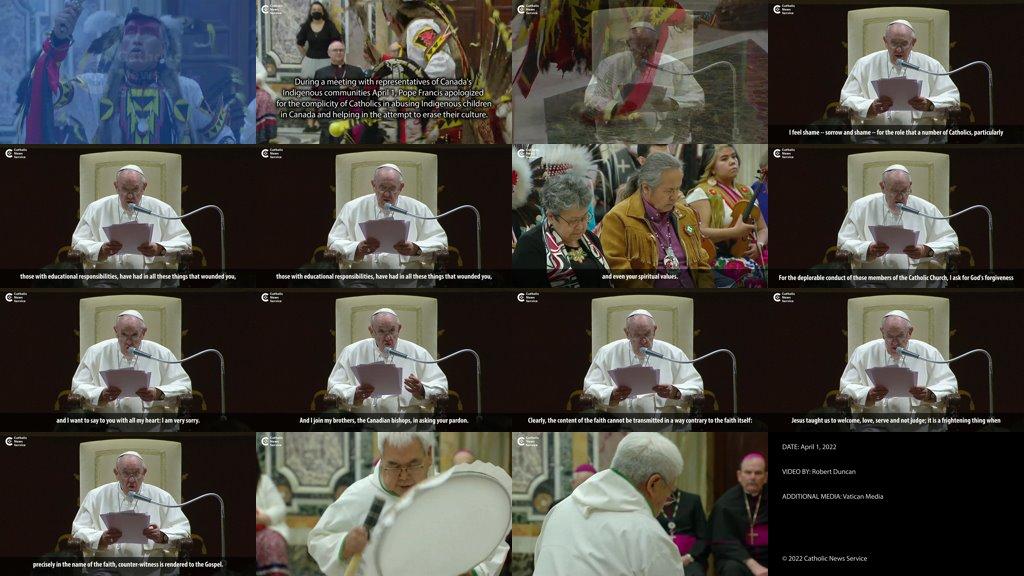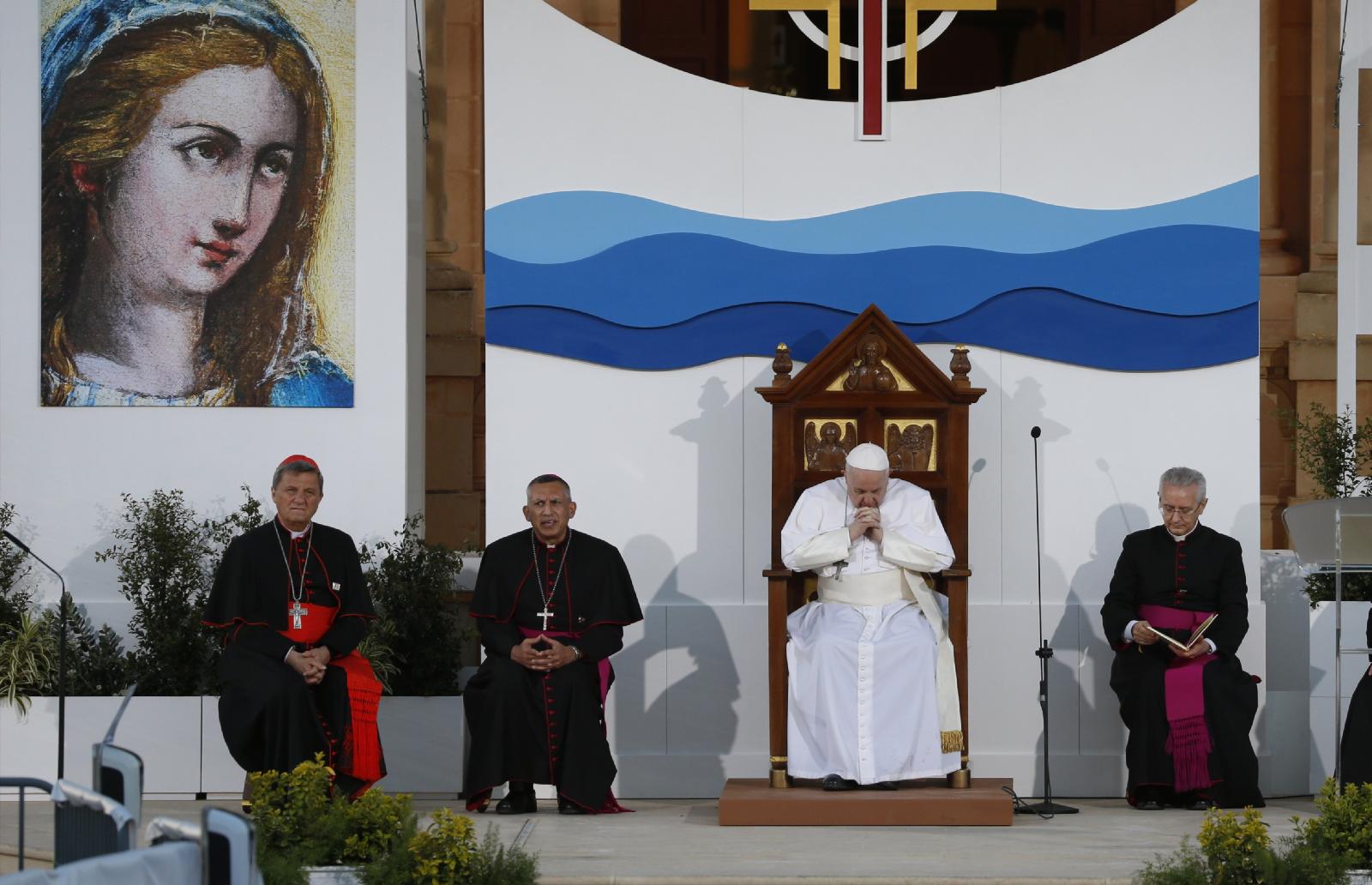Malta’s great spiritual and pastoral traditions must serve as a road map to the future for the Catholic Church, rather than a relic commemorated with “received traditions, solemn celebrations, popular festivals and powerful and emotional moments”, Pope Francis said.
“We need a faith built upon and constantly renewed in the personal encounter with Christ, in daily listening to his word, in active participation in the life of the church and in authentic popular piety,” the Pope said yesterday at a prayer service outside the Ta’ Pinu National Shrine.
“The crisis of faith, apathy in religious practice, especially in the aftermath of the pandemic, and indifference shown by many young people toward the presence of God; these are not issues that we should sugarcoat, thinking that, all things considered, a certain religious spirit still endures,” he said.
After meeting with diplomats and government and civil leaders in Valletta, the Pope traveled by catamaran to the island of Gozo, one of 21 islands that make up the Maltese archipelago in the Mediterranean Sea. Seated on a white chair on the bow of the catamaran, Pope Francis admired the views of Maltese architecture and the pristine-blue Mediterranean as pilgrims stood along the coast, waving at him.
As the vessel pulled into Mgarr harbour, he was whisked away in a white Fiat 500 before boarding his Popemobile. Arriving at the national shrine, the Pope greeted the estimated 3,000 pilgrims gathered outside waving flags bearing the yellow and white papal colors.
First built as a chapel in the 16th century, the Ta’ Pinu National Shrine was rebuilt over the site two centuries later to welcome the increasing number of pilgrims who visited after Mary reportedly appeared to a woman in 1883 and asked her to pray at the chapel, which was in disrepair.
Pope Pius XI designated it a minor basilica in 1932.
During the prayer service, several Catholics gave witness to their faith and what the shrine means to them and to the countless pilgrims who visit each year.
Sandi and Domenico Apap, along with their daughter Nicole, son-in-law Christian and grandchild Thea, spoke to the Pope about how their faith sustained them after Sandi was diagnosed with multiple sclerosis.
Despite the difficulties, she said, “the greatest sign the Lord gave me was his love and closeness” through her family.
The Pope thanked the couple and their family for their “persevering love” and “witness of faith”.
Jennifer Cauchi recounted the story of the Marian apparition to Pope Francis and said: “Mary continues to call and to give hope to pilgrims who come to visit her, young people, the elderly, families, religious men and women.
“Here each one feels welcomed, and all can lay before Mary’s feet their sufferings and their joys.”
Recalling her words, the Pope said St. John Paul II was among the many pilgrims who have visited the shrine to venerate Mary.
The shrine “that once seemed forsaken now revitalises faith and hope within the people of God”, he said.
The church, he continued, should “be centred on witness and not certain religious customs” and should also go out and proclaim the Gospel rather than “be a closed circle”.
The Pope told the pilgrims that the signs of fraternal love, especially toward migrants and refugees, remain a “litmus test for assessing to what extent the church is truly evangelical”.
Like Mary and John, who chose to stay at the foot of the cross with Jesus rather than remain hidden, Pope Francis said Christians cannot accept “each other only in the shelter of our beautiful churches, while outside so many of our brothers and sisters suffer, crucified by pain, poverty and violence”.
He said: “Yours is a crucial geographical position, overlooking the Mediterranean; you are like a magnet and port of salvation for people buffeted by the tempests of life who, for various reasons, land on your shores. It is Christ himself who appears to you in the faces of these poor men and women.”



 Loading ...
Loading ...